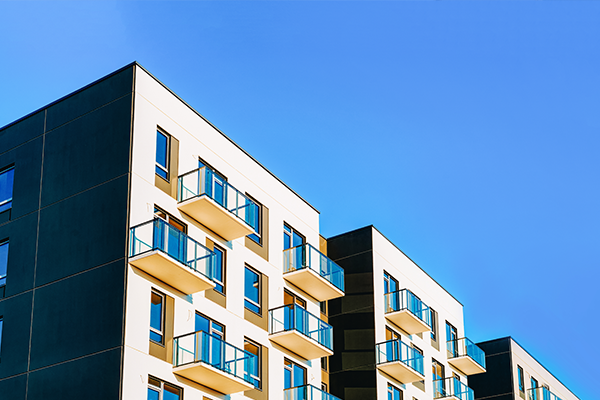
If you’re thinking about buying a place of your own, you’ll need to decide which type of property you want to live in.
While the price can often be a huge deciding factor, houses are not always more expensive than flats. Sometimes, choosing between the two depends on other factors.
In this article, we’ll explore the differences between buying a house vs a flat and share our thoughts on the pros and cons to consider.
What are the Pros of Buying a House?
1. You’ll Have More Control
When you buy a house, you often purchase the freehold instead of the leasehold. With freehold ownership, you have more control over what you can do with and to the property.
For example, you can decorate, renovate or extend your property without needing permission from a leaseholder.
2. You Should Have Free Parking
Generally, buying a house means you’ll have access to free street parking or (if the property has a driveway) off-street parking. In flats, you often have to purchase a parking space – which can be a one-off or annual cost.
However, be mindful that you may need to pay for a council permit to park outside some houses, especially if it’s near a station.
3. You’ll Have a Front & Back Garden
Sizing varies, but almost every house has a back and front garden.
This means you’ll need to do more maintenance. But, more importantly, it also means you can enjoy gardening, decorating your front garden, and having access to private outdoor space.
What are the Cons of Buying a House?
1. You’ll Have More Responsibility
Since you normally own the freehold when you buy a house, you’re responsible for maintaining everything related to the property. This can include upkeep of things like fences, drains, windows, boilers, gardens and the roof.
What are the Pros of Buying a Flat?
1. You’ll Have Less Responsibility
Even though you still need to maintain your home, most flats offer leasehold ownership. This means that, while you own the flat, someone else owns (and is responsible for) the building.
Within your lease, your ‘landlord’ may be responsible for things like cleaning the windows or arranging costly building repairs.
What are the Cons of Buying a Flat?
1. There may be extra charges
When you buy a flat, there are normally more charges than a house. For example, you’ll need to pay rent and service charges (which can change annually) to pay for general building repairs.
How to Decide Between Buying a House vs a Flat
Choosing between buying a house vs a flat depends on many factors.
Before you decide, consider the following:
- What can you afford?
- How long do you plan on living there?
- How much responsibility you want
- How important is outdoor space to you?
- What parking access do you need?
If you need help deciding which option is right for you, we are your local property experts.
Our friendly team are happy to discuss our properties and help you decide which one is right for you.